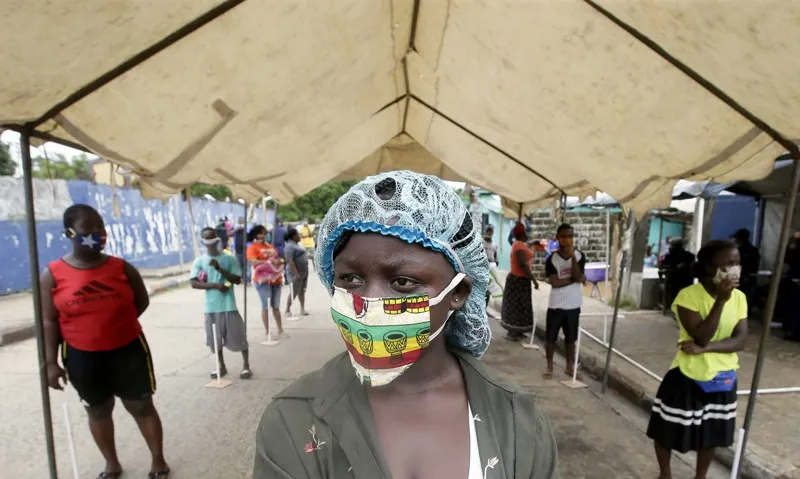
A raging pandemic with no end in sight has led many to emphasise a
need to co-exist with the virus and fully integrate the safety protocols into daily living for the foreseeable future. Not for a lack of trying, governments world over barring a few aberrations have failed to contain the virus and have been caught off guard, confronted with a host of unintended and unfathomable consequences of dealing with this pandemic. One such under-explored consequence of Covid-19 has been the disruption in international relief and humanitarian aid infrastructure. The massive impact of the pandemic on economic and human capital and the impediments it poses for organisations to carry out crucial relief work related and unrelated to Covid-19 is immense. It's crucial to understand the existential crisis confronting humanitarian aid and relief organisations to begin deliberating upon policies to help keep them afloat as we chart our way towards a semblance of normalcy.
Probably the most devastating impact of Covid-19 on humanitarian aid is the massive cost cutting and reallocation of funds away from key humanitarian projects towards dealing with the pandemic. Oxfam-- a leading confederation of twenty international charitable organisations
shut down operations in 18 countries including Afghanistan, Sudan and Haiti where relief programs are the need of the hour. This cost cutting measure in response to Covid-19 compelled Oxfam to
reduce its on-ground presence in 48 countries and its British branch- a key source of funding, is pegged to see a drop to the tune of
US$ 434 million funding for international relief organisations to carry out their programs effectively is also largely a product of generous remittances provided by donor countries and unfortunately, due to Covid-19, the world bank projects remittances to drop by US$ 110 billion this year.
In what seems like a double whammy, the cost cutting for non-Covid relief work is compounded by the redirection of reserve funds initially set aside for development aid projects towards battling Covid-19. This has led to a sever dearth in economic resources to combat other existential threats confronting the international community. West Africa’s experience of the Ebola Virus already alluded
to the dangers of diverting scarce resources to deal with Ebola at the expense of other critical aid. For instance, research found that routine care for malaria, HIV and tuberculosis was hampered due to the Ebola Virus leading to an
estimated 10,600 additional deaths in Guinea, Liberia and Sierra Leone. However, it seems that the ominous signs from past experience on this matter has been put aside in face of the overwhelming toll Covid-19 has taken on public health infrastructure. To deal with Covid-19 and its challenges, the UN’s global emergency standby response fund
has put up US$ 95 million while the global fund to fight AIDS, tuberculosis
will also redirect a fair share of its funds towards Covid-19 relief. The natural consequence of this reallocation has meant that the pandemic shall overshadow other crucial health needs. For one, the pandemic has forced many organisations to
delay vaccination programs and a fear that vaccine-preventable diseases like measles may be on the rise due to derailment of vaccination efforts is looming. Medecins Sans Frontiers (MSF) echoed these concerns stating that neglecting other health services could lead to a
“catastrophic situation”. This is already evident with UNICEF announcing a severe backlog in vaccine shipments due to lockdowns and a global coalition stating in April that these delays may lead to
an estimated 117 million children missing their measles vaccines. While Covid-19 rages on and a global coalition seeks to confront it, aid groups are still urging donors to minimise resource reallocation as they believe existing relief programs need to be scaled up rather than rolled back.
Exacerbating the already devastating economic impact of Covid-19 on relief work, is how it has affected the provisions for specific at-risk demographics whose plight has only worsened due to the pandemic. Most notably, humanitarian funding for gender-based violence which merely constitutes a measly
0.01% of humanitarian aid funding is especially vulnerable. Note that the lockdown to curb Covid-19 has intensified domestic violence issues-especially in densely populated zones and 2/3
rd of humanitarian programs to address gender issues already
receive zero funding. Moreover, data from the International Planned Parenthood Federation (IPPF) showed that more than 5,600 clinics providing reproductive health care
have been shut down and 40% of all IPPF member organisations have reported
severe reduction in services, only worsened by the pandemic. Thus, with international organisations emphasising more funding to deal with health burden of Covid-19, a fear that critical infrastructure to deal with issues like gender-based violence may be compromised and this is especially disconcerting since gender-based violence
has only shot up since the onset of Covid-19.
Apart from funding deficits and reallocation of resources, Covid-19 has also greatly compromised human capital through travel restrictions and mandatory distancing, posing numerous obstacles for international organizations to carry out the logistics of relief operations. On the bright side, these logistical challenges seem to have ushered in some positive developments in the way relief programs are implemented — specifically in the
gaining prominence of localising humanitarian aid. Covid-19 has shown that most relief work shall be remote and the biggest asset for the humanitarian aid community shall be the affected communities themselves. Through informal networks, education programs and health services, refugee-led interventions have been instrumental in
ensuring the survival of refugee camps. Despite their importance, international organisations like the UN have failed to give local civil-society groups
their due credit and the hope is that Covid-19's devastation might finally compel international organisations to acknowledge the value local communities bring to the table. Even though on a rhetoric level, international forums like the UN Global Refugee forum and the World humanitarian Summit have highlighted the
importance of “local actors”, it has failed to translate on a policy level as the dominant model of humanitarian aid continues to delegate relief work to international NGO’s far removed from the local context. This is especially concerning since research in Kenya and Uganda
showed that 90% refugees stated that in an emergency, they would turn to community support rather than international organisations.
It is important to note that localising aid and seeking international support are not a binary choice and should be thought of in tandem. Take the example of Hope for Children and Women Victims of Violence (HOCW) - a local self-help group started by Congolese refugee Bolingo Ntharia. It started as a small informal community in 2008 but with the help of international funding and institutional support,
they expanded to provide vocational education and psycho-social support for local Ugandans and refugees. This is a great case of international aid and local groups working together and leveraging each other’s strengths to provide the best infrastructure for those in need.
It is crucial that policymakers strategising about best practices for international relief in the Covid-19 age realise the importance of local actors. Even in dealing with the devastation of Covid-19 in conflict zones,
local groups have shown to be key in dispelling misinformation about the virus, providing on-ground support to local health care systems and tracing the rate of spread- aided by international organisations providing apps that facilitate community tracing. Thus, be it dealing with Covid-19 or the other existential threats sidelined in its wake, a model where international aid organisations identify local groups doing admirable work and help them scale operations as in the case of HOCW in Uganda is imperative and the hurdles posed by the pandemic may only bolster the need for this local-international interplay.
The views expressed above belong to the author(s). ORF research and analyses now available on Telegram! Click here to access our curated content — blogs, longforms and interviews.



 A raging pandemic with no end in sight has led many to emphasise a
A raging pandemic with no end in sight has led many to emphasise a  PREV
PREV


